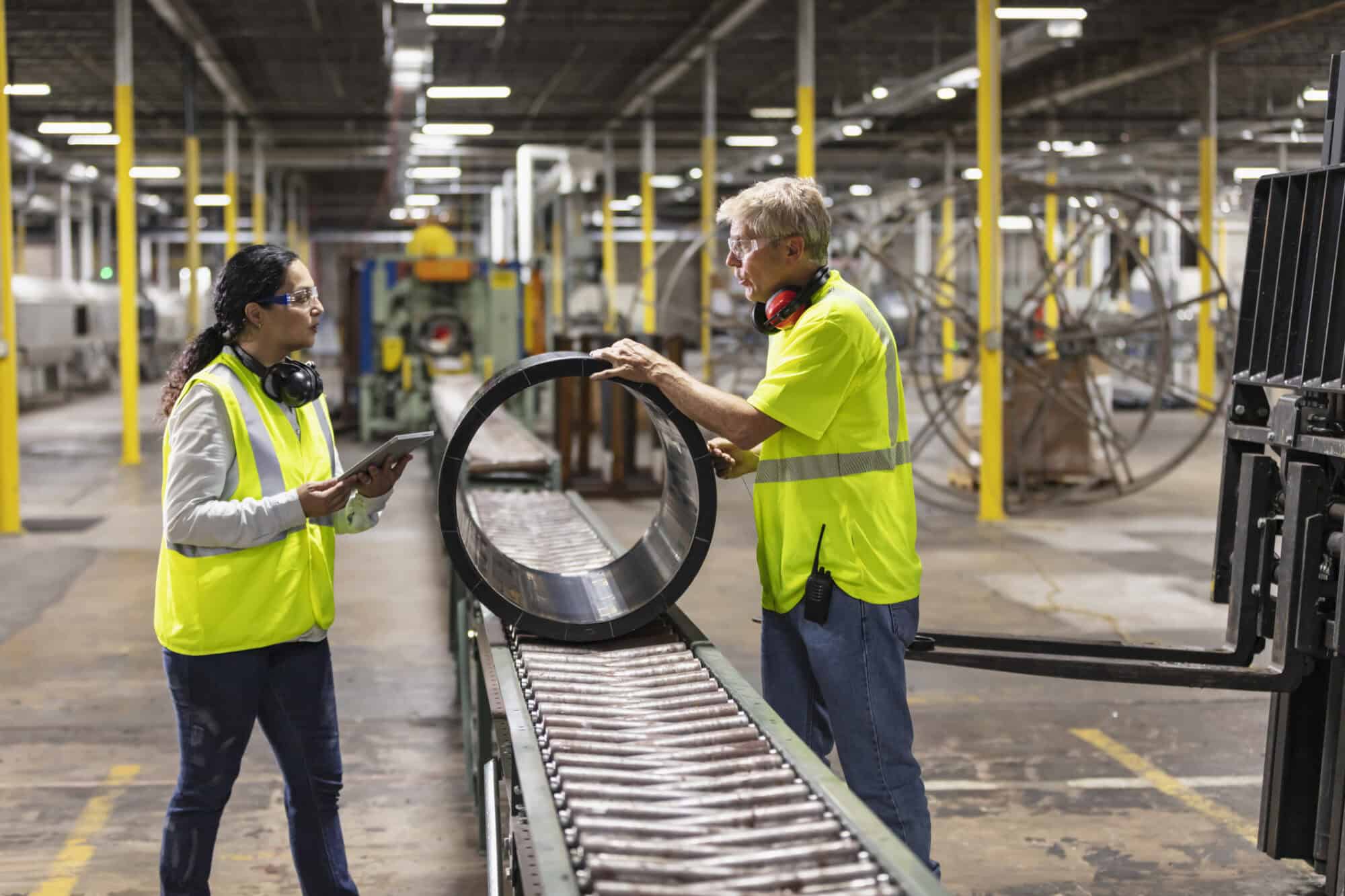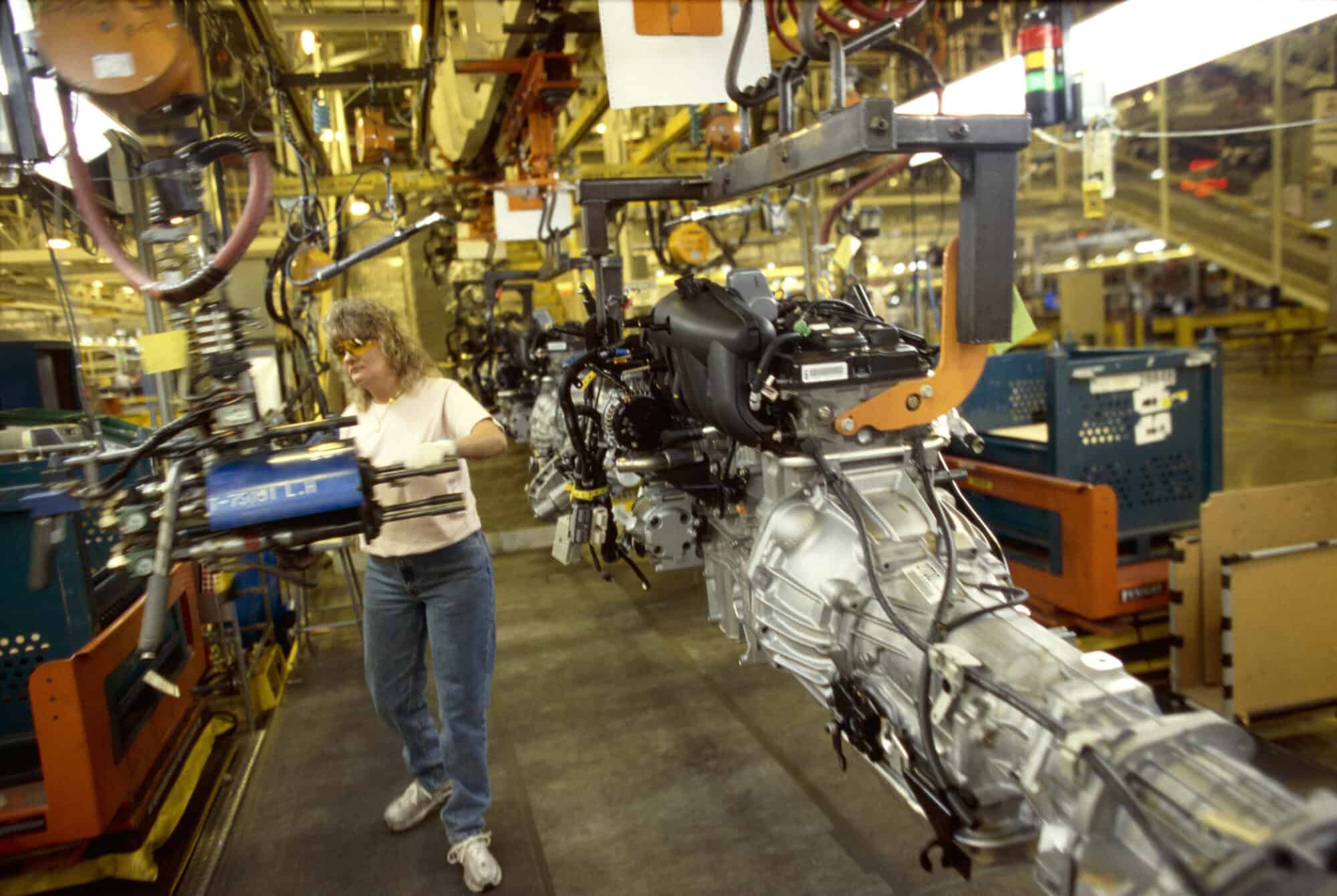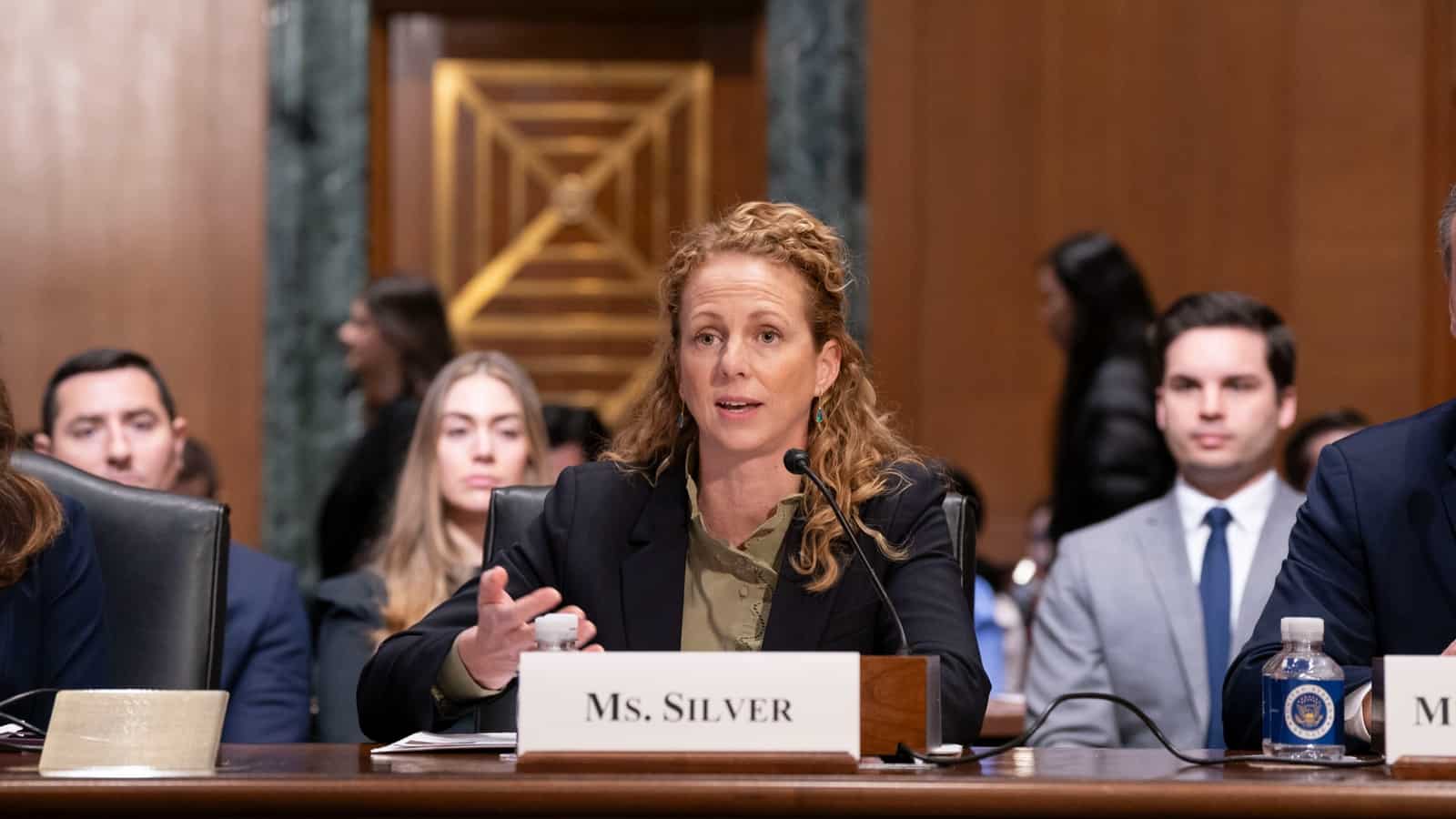Why Congress Should Cook Up a New MTB

Kitchens across America are missing a key ingredient: a new Miscellaneous Tariff Bill.
What’s going on: SCHOTT North America—a subsidiary of the German specialty glass, glass ceramics and high-tech material manufacturer—produces CERAN glass-ceramic cooktops at its facility in Vincennes, Indiana, where it employs more than 140 workers.
- To manufacture the cooktops in Indiana, the company must first import “green glass”—the glass-ceramic material that is refined and finished for use in appliances—which is not available in the U.S.
- However, heavy import tariffs on green glass make it much costlier for SCHOTT to manufacture these cooktops in the U.S., while fully processed cooktop panels that are finished abroad and then imported are not taxed.
That’s why the NAM is calling on Congress to pass a new MTB as soon as possible. Trade policies should help companies in the United States become more competitive, not less.
What’s the MTB? The MTB temporarily eliminates or reduces tariffs on more than 1,500 different products not available in the U.S. Congress typically renews the MTB every few years with bipartisan support, but the last MTB expired in December 2020, increasing costs for manufacturers nationwide.
- For SCHOTT North America, the MTB’s expiration has led to significantly higher costs for the past three-and-a-half years.
Action needed: To help SCHOTT and other manufacturers in the same predicament, the NAM has been urging lawmakers to pass the Miscellaneous Tariff Bill Reform Act, which would renew the MTB through the end of 2025 and offer retroactive duty relief back to the beginning of 2021.
- Since the lapse of the last MTB, manufacturers have paid more than $1.5 billion to get materials they cannot source in the U.S., according to an NAM analysis.
- While SCHOTT North America has maintained its workforce at the Vincennes site, these growing costs have interfered with the company’s plans for expansion.
- “We employ about 140 people at the site to process green glass, but the potential is there to hire more and do more” if an MTB were in place, said Tim Kiger, general manager for SCHOTT North America in Indiana.
No other options: Melting the specialty glass in the U.S. isn’t an option at this time, according to Jim Purcell, SCHOTT North America’s international trade compliance manager.
- “Producing green glass here in the United States would be incredibly expensive and technically difficult to do,” he said. “To build a melting operation in the U.S. would take a long time.”
A voice in Congress: Back in October, Rep. Larry Bucshon (R-IN), whose district is home to the Vincennes facility, urged colleagues in the House Ways and Means Committee to advance a new MTB in the name of fairness.
- “The MTB ensures that American producers like SCHOTT are not penalized for importing inputs that are not produced in the United States, and levels the playing field against similar finished products being imported from China,” said Rep. Bucshon.
The last word: SCHOTT North America hopes that the MTB legislation, which is sitting in the House, will soon be enacted.
- The financial relief offered by a new MTB “would be almost immediate,” Kiger said.
- Added Purcell, “The MTB is a good mechanism to … conserve savings. In the global market right now, any cost savings helps you stay competitive.”
Corporate Tax Rate: A Q&A with Rep. Carol Miller

The NAM recently talked to Rep. Carol Miller (R-WV), the head of the House Ways and Means Committee’s Supply Chain Tax Team, about how raising the corporate tax rate would “devastate” manufacturers, and what she and her colleagues in Congress are doing to keep it where it is.
NAM: Rep. Miller, Congress is facing a “Tax Armageddon” next year, as crucial provisions from 2017’s Tax Cuts and Jobs Act are set to expire. As the leader of the Ways and Means Supply Chain Tax Team, what is your focus moving into next year’s debate?
Miller: In all the meetings I have with Fortune 500 companies, small businesses and stakeholders, it’s clear that the corporate rate is top of mind for everyone. We are all concerned that if the corporate rate is raised from 21%, consumers will be hit the hardest by the rising prices of everyday goods and services. I know for capital-intensive industries like mining, having a consistent tax rate is essential. I’m also focused on how energy tax credits are implemented and making sure that the government isn’t picking winners and losers by their rulemaking. During the reauthorization, my Supply Chains Tax Team will be evaluating the various energy credits currently in law to see what works and what needs tweaking.
NAM: Prior to 2017, the United States’ corporate tax rate was 35%, the highest in the OECD and third-highest in the world. Tax reform lowered the rate to 21%, aligning the U.S. with the average rate elsewhere in the OECD. What does it mean for Congress to protect this lower rate, and what would happen if it goes up?
Rep. Miller: If the corporate rate goes up, it would be devastating for every American, from the small business owner to the CEO who is trying to expand their business. The corporate rate rising means there will be higher prices while the U.S. struggles to compete on the global scale. The best thing we can do in Congress is cement the corporate rate at 21%—or better yet, lower it even more—through the TCJA reauthorization in 2025.
NAM: In 2018, the year the 21% corporate rate took effect, manufacturers created more than 260,000 jobs (the best year for job creation in 21 years) and increased wages by 3% (the best year for wage growth in 15 years). What else is the Supply Chain Tax Team seeing on the impact of the corporate tax rate as they visit with businesses around the country?
Rep. Miller: We’ve only seen positive impact from the corporate rate being lowered. When the pandemic hit and the markets were falling due to uncertainty and instability, the lower corporate rate gave companies more flexibility to help their employees and keep costs low instead of paying the government sky-high taxes. The lower corporate rate protected jobs, helped produce more economic growth and makes all the difference for American families who are struggling with inflation. Furthermore, the lower rate led to higher federal revenues since companies were able to expand and invest so heavily following the passage of the Trump Tax Cuts.
NAM: Thank you for being a champion for manufacturers across the country. What can our members do to stay involved and be a resource for your tax team’s work?
Rep. Miller: Spread the word to those who might not know why the corporate rate is so important. The majority of Republicans are on the same page about this, but some think that in order to bring down inflation, you need to raise taxes on businesses. That is not true. Prices only go down if costs for companies go down, and the corporate rate is an effective way to do that while simultaneously boosting the American economy.
Rep. Miller: Keep Corporate Tax Rate Low

Unlike many other pro-growth tax reform provisions, the corporate tax rate isn’t set to expire at the end of 2025, but some policymakers and President Biden have proposed increasing it.
The NAM recently talked to Rep. Carol Miller (R-WV), the head of the House Ways and Means Committee’s Supply Chain Tax Team, about how raising the corporate tax rate would “devastate” manufacturers, and what she and her colleagues in Congress are doing to keep it where it is.
“Devastating for every American”: Raising the corporate tax rate from its current, competitive 21% rate would be ruinous, Rep. Miller said. She’s focused on preventing that from happening.
- “If the corporate rate goes up, it would be devastating for every American, from the small business owner to the CEO who is trying to expand their business,” Rep. Miller told us. “The corporate rate rising means there will be higher prices while the U.S. struggles to compete on the global scale. The best thing we can do in Congress is cement the corporate rate at 21%—or better yet, lower it even more—through the [2017 Tax Cuts and Jobs Act] reauthorization in 2025.”
- Prior to tax reform, the U.S. had the highest corporate tax rate in the Organisation for Economic Co-operation and Development at 35%, and the third-highest rate in the entire world, harming America’s ability to attract manufacturing investment.
The effect of 21%: Rep. Miller emphasized that the U.S. economy has “seen only positive impact from the corporate rate being lowered.”
- “When the pandemic hit and the markets were falling due to uncertainty and instability, the lower corporate rate gave companies more flexibility to help their employees and keep costs low instead of paying the government sky-high taxes,” she went on. “The lower corporate rate protected jobs, helped produce more economic growth and makes all the difference for American families who are struggling with inflation.”
- In 2018, the year the 21% rate took effect, manufacturers created more than 260,000 jobs and were able to raise wages by 3%, the fastest pace in 15 years.
What manufacturers can do: To help preserve the 21% corporate tax rate, manufacturers should be vocal about its importance to the U.S. economy.
- “Spread the word to those who might not know why the corporate rate is so important,” Rep. Miller concluded. “Some think that in order to bring down inflation, you need to raise taxes on businesses. That is not true. Prices only go down if costs for companies go down, and the corporate rate is an effective way to do that while simultaneously boosting the American economy.”
Get involved: The NAM’s “Manufacturing Wins” tax campaign gives manufacturers the opportunity to share their tax reform stories with policymakers. You can join the campaign at www.NAM.org/MfgWins.
Learn more: Our full interview with Rep. Miller is available here.
Timmons: Industry Resilient, but Action Needed

Despite mixed market signals in recent weeks, the U.S. economy is strong and manufacturing is resilient—but Congress must take certain steps to maintain the industry’s competitiveness, NAM President and CEO Jay Timmons told Fox News host Neil Cavuto Monday.
What’s going on: When lawmakers return from their August recess next month, they should prioritize several tax provisions, Timmons said.
- “When … Congress goes back, we’ve got to deal with interest deductibility, and we’ve got to deal with the research-and-development tax deduction,” he continued. “We’ve got to deal with full expensing. Those are things that have expired.” These measures and others are top priorities in the NAM’s tax campaign, Manufacturing Wins.
- Other manufacturing-critical tax provisions are scheduled to expire or be reduced drastically at the end of next year, including the pass-through and estate-tax deductions. What’s more, “candidates on both sides of the aisle … are talking about raising taxes on businesses,” Timmons said. Individual tax rates and tax rates on manufacturers that operate globally are also set to rise at the end of 2025.
Regulatory onslaught: Manufacturers are also struggling with a “regulatory burden that is driving up the cost of doing business,” Timmons told Fox News.
- “We have restrictions on our ability to develop energy sources here, and we have a ban on exports of natural gas. All of those things lead to potential downsides in the economy.”
- The vast majority of Americans support exporting natural gas, a March NAM poll found, but the Biden administration’s indefinite pause on permits to export liquefied natural gas, imposed in January, continues.
Hopeful outlook: “There is a … very positive sense among manufacturers that if we do the right things on the policy front, we’re going to continue [the] expansion in the sector,” Timmons added. “We’re going to continue the record investments that we’ve seen, the record job growth and the record wage growth in the sector.”
NAM: Don’t Rush Proposed Reforms in Mexico

Mexican President Andrés Manuel López Obrador proposed a sweeping package of amendments to Mexico’s constitution back in February. Now, with President-elect Claudia Sheinbaum set to take office in less than two months, manufacturers want to know whether and how the changes will happen.
What’s going on: “Over the last 10 years, manufacturers in the U.S. have dramatically expanded facilities and operations in Mexico, totaling over $25 billion, according to the U.S. Commerce Department,” said NAM Director of International Policy Dylan Clement at the recent Wilson Center event “Mexico’s Judicial Reforms: Perspectives from the Private Sector.”
- “When manufacturers invest, they sink large amounts of capital—literally—into the ground, which is costly to relocate once built,” he continued. “We do not pretend to know how the judicial reform will play out … [but] manufacturers are fearful of the risk associated with enacting sweeping changes to the judicial system in Mexico on such a short timeline.”
- Sheinbaum, who will be Mexico’s first female president, and her Morena party won a landslide election in June.
What’s been proposed: The constitutional amendments set forth include eliminating government oversight and regulatory agencies, including Mexico’s freedom-of-information body, INAI, and its anti-trust agency, COFECE, and requiring all Mexican judges—including Supreme Court judges—to be elected by popular vote, according to the Associated Press and Reuters.
- Several of the amendments appear to violate Mexico’s obligations under the U.S.–Mexico–Canada Agreement.
Why it’s important: Mexico is America’s largest trading partner, and “[a]t the end of the day, manufacturers want to partner with Mexico to help it prosper economically, grow its industrial capacity and enhance its self-sufficiency,” Clement said—but the broad revisions set forth by López Obrador and other worrying developments in Mexico have the potential to damage the critical relationship and undo important recent gains.
- The proposed changes to Mexico’s judicial system could erode the checks and balances within Mexico’s government, politicize judicial outcomes, undermine the rule of law and result in higher levels of corruption throughout Mexico.
- For investors, these challenges would be compounded by the USMCA’s weakened investor state dispute-settlement mechanism, which requires foreign investors to go through Mexico’s domestic court system before seeking a neutral arbitration panel via the USMCA.
In sum, the constitutional amendments carry the risk of greatly complicating the upcoming review of the USMCA, which the U.S., Canada and Mexico will conduct in 2026.
- Ultimately, any erosion of the business climate in Mexico will harm the attractiveness of Mexico as a destination for manufacturers seeking to “near-shore” their supply chains closer to the U.S.
What should be done: “For these reasons, the NAM would caution against rushing the judicial reform through in September, given that it will have an impact on Mexico’s investment climate for decades to come and many questions about it remain unanswered,” Clement concluded. “It is better to get this right than done quickly.”
NAM to Congress: Allow Manufacturers to Keep Innovating

The 21st Century Cures Act of 2016 and its 2021 follow-on, Cures 2.0, are providing a pathway toward potentially groundbreaking cures and treatments—but there’s room for even more improvement in the federal government’s handling of pharmaceutical innovation, the NAM said this week.
Now, Reps. Diana DeGette (D-CO) and Larry Bucshon (R-IN) are looking to build on the legacy of these two bills.
The background: The 21st Century Cures Act, introduced in 2015 by Rep. DeGette and former Rep. Fred Upton (R-MI) and signed into law the following year, aimed to speed up the development and delivery of medical innovation.
- The 2016 measure “ensured that federal agencies like the [Food and Drug Administration], the Centers for Medicare & Medicaid Services and the National Institutes of Health had the tools they needed to keep pace with and adapt to the tremendous advances being made by biopharmaceutical and medical device manufacturers,” said NAM Vice President of Domestic Policy Charles Crain.
- Cures 2.0, passed after the global pandemic, created the Advanced Research Projects Agency for Health, “a home within the federal government for high-risk, high-reward medical research.”
New medical advances: The face of medical innovation “has changed dramatically” in the past eight years, Crain pointed out, as we’ve seen the first-ever federal approval of gene therapy and the development of vaccines using mRNA technology.
What’s needed: The new landscape necessitates more congressional action, Crain went on, including:
- Continuing to embrace the new technologies that emerged from the COVID-19 pandemic like mRNA and other innovations;
- Modernizing federal agencies such as the FDA to keep up with these innovations; and
- “[E]nsuring the government’s processes for reviewing and approving new treatments are as innovative as the treatments themselves.”
Why it’s important: Biopharmaceutical manufacturers are economic powerhouses. In 2021, they:
- Accounted for $355 billion in value-added output to the U.S. economy;
- Contributed a total of nearly 1.5 million direct and indirect jobs; and
- Contributed $147 billion in labor income.
The Corporate Tax Rate, Explained

The NAM’s 2025 tax campaign, “Manufacturing Wins,” is focused on preserving tax provisions critical to manufacturing in the U.S. One of those is the corporate tax rate, which the 2017 tax reform lowered from 35% to a globally competitive 21%.
The NAM recently released a tax explainer on the current corporate rate, emphasizing why it’s crucial to U.S. manufacturing’s competitiveness on the world stage.
The background: Prior to 2017, the U.S. corporate tax rate was 35%, the highest among our peers in the Organisation for Economic Co-operation and Development and the third-highest rate in the entire world—making the U.S. an outlier and harming its ability to attract manufacturing investment.
- Tax reform lowered the corporate rate to 21%, aligning the U.S. with the average rate elsewhere in the OECD.
The benefits: Reducing the tax burden on manufacturers led to increased investment throughout the U.S., job creation, wage growth and overall economic expansion.
- In 2018, the year the lower rate took effect, manufacturers had their best year for job creation in more than two decades, creating more than 260,000 positions and increasing wages by 3%—the fastest pace in 15 years.
- NAM surveys conducted prior to tax reform found that nearly 80% of manufacturers were struggling with unfavorable business conditions like high taxes—a figure that dropped to just 12% following the reduction in the corporate rate.
What’s at stake: Although the corporate tax rate is not set to expire at the end of 2025, as other pro-growth provisions are, President Biden’s fiscal year 2025 budget called for an increase to 28%.
- This proposal would return the U.S. to one of the highest corporate tax rates in the developed world, resulting in fewer jobs, lower wages, less innovation and reduced investment in our communities.
What should be done: “Manufacturers are calling on Congress to preserve tax reform in its entirety—including the 21% corporate tax rate,” the NAM said.
- “Congress should maintain a globally competitive corporate rate—enabling manufacturers to continue leading on the world stage while driving innovation and job creation here at home.”
Tax Bill Scheduled for Thursday Vote

Senate Majority Leader Chuck Schumer (D-NY) has scheduled a procedural vote on a bipartisan tax package, though the bill’s fate remains uncertain.
What’s going on: The Tax Relief for American Families and Workers Act would restore expired tax policies that reduce the cost of manufacturers’ investments in R&D, equipment and machinery. Ahead of Thursday’s vote, the NAM called these policies “vital to manufacturing workers and America’s economic future.”
- Immediate R&D expensing: Prior to 2022, manufacturers in the U.S. could fully deduct their R&D expenses in the year those expenses were incurred. But in 2022, first-year R&D expensing expired, making R&D investments significantly more costly, particularly for small and medium-sized manufacturers.
- Enhanced interest deductibility: Also in 2022, a new standard took effect limiting the amount of interest manufacturers can deduct on business loans, making it more expensive for them to invest in growth and expansion.
- Accelerated depreciation: In 2023, 100% accelerated depreciation—which allows manufacturers to immediately expense the full value of their capital equipment purchases—began phasing down, meaning these vital investments are now more costly for manufacturers.
What to expect: Thursday’s procedural vote requires 60 votes in the Senate, a difficult hurdle.
What’s next: Immediate R&D expensing, enhanced interest deductibility and 100% accelerated depreciation are top priorities in the NAM’s 2025 tax agenda. As Congress prepares to address scheduled expirations of other policies from the 2017 tax reform next year, the NAM will continue to call for restoration of these important pro-growth incentives.
The last word: “Competitive tax policy is critical to manufacturers’ ability to compete on the world stage and create jobs here at home,” said NAM Vice President of Domestic Policy Charles Crain. “Congress should restore expired pro-growth tax policies and act to prevent even more devastating tax increases scheduled for 2025.”
Small Manufacturers: Save the Pass-Through Deduction

A critical tax deduction for small businesses is set to expire at the end of 2025, and manufacturers are sounding the alarm as part of the NAM’s “Manufacturing Wins” tax campaign.
Increasing the tax burden: Courtney Silver, president and owner of Concord, North Carolina–based Ketchie, recently emphasized the importance of the pass-through deduction. As an S corporation, Ketchie is one of the many small manufacturers that are eligible for this 20% deduction created by the Tax Cuts and Jobs Act.
- Silver, who chairs the NAM’s Small and Medium Manufacturers Group, warned that the expiration of this provision, along with the planned increase in individual tax rates, will “dramatically increase the tax burden on small manufacturers like Ketchie.”
Decreasing competitiveness: The disappearance of the pass-through deduction would make American companies less competitive on the world stage, predicted Austin Ramirez, president and CEO of Husco, a Waukesha, Wisconsin–based maker of hydraulic and electromechanical components for on- and off-highway vehicles.
- “The loss of the TCJA’s small business provisions would severely hamper our growth trajectory,” he said.
- “The combination of an increased tax rate and the loss of the pass-through deduction would be especially damaging, tilting the playing field against Husco and other pass-through manufacturers.”
Damaging supply chains: “Many small manufacturers are organized as pass-throughs, including most of [our] key suppliers,” said Chuck Wetherington, president of BTE Technologies in Hanover, Maryland.
- “A tax increase on pass-throughs would have a damaging, disproportionate impact on the manufacturing industry.”
Discouraging entrepreneurs: Competitive tax policy is personal for small manufacturers like Hannah Kain, who founded ALOM Technologies out of Fremont, California. “Like many immigrants before me, I came to the U.S. for opportunity,” Kain said.
- “Since I started the company in 1997, we have reinvested every dollar we made into growing the company. … I personally see how hard it is for entrepreneurs—and especially minorities—to start the type of company that must make big investments in equipment, space, inventories and so much more.”
Reducing growth: “[The 2025 tax hikes] will affect manufacturing businesses like ours and make it more difficult for us to hire more employees, raise wages and drive growth for our business,” said Lee Dougherty, a mechanical engineer at Madsen Steel.
- “We need our representatives in Congress to do their part by stopping these tax hikes so that we can continue to invest in our community and the future of our business.”
What you can do: Manufacturers willing to share their own stories about the need to preserve key tax reform measures can visit NAM.org/MfgWins or email the NAM’s tax team to get involved.
NAM Calls for Oversight on the CPSC

Manufacturers have long been partners of the Consumer Product Safety Commission—working with the agency to keep the public informed and protected—but a lack of transparency at the CPSC in the past few years has stymied businesses’ attempts “to understand how [they] will be regulated,” the NAM told the House Energy and Commerce Subcommittee on Innovation, Data and Commerce ahead of a hearing Tuesday.
What’s going on: The NAM has regularly called for congressional oversight of the CPSC in recent years. Ahead of the “Fiscal Year 2025 Consumer Product Safety Commission Budget” subcommittee hearing, the NAM highlighted several areas of concern for legislators to address:
- Section 6(b) of the Consumer Product Safety Act: “Manufacturers strongly support maintaining the crucial, balanced and effective information disclosure procedures currently mandated in the Consumer Product Safety Act,” said NAM Vice President of Domestic Policy Charles Crain. “Unfortunately, in recent years, the CPSC has attempted to circumvent these standards, releasing statements that lack any scientific data or research or by taking actions without official agency rulemaking.”
- Effective communication of rulemaking and research with regulated businesses: Despite a CPSA requirement that the agency defer to voluntary standards in certain safety-measure compliance cases, “there are recent examples of the agency commencing a proposed rulemaking in an apparent rush to regulate.” The agency has also begun unnecessarily withholding from manufacturers the test reports and analysis they need to create voluntary standards, while giving manufacturers “reduced time … to implement proposed and final rules.”
- Public engagement by CPSC commissioners and staff: “One of the benefits of a small federal agency with multiple commissioners is the availability of commissioners and senior staff to meet with interested parties on relevant topics,” Crain continued. “Unfortunately, in recent years, the CPSC has been less willing to engage in productive conversations with regulated entities.”
The last word: “It is critical that the CPSC effectively communicate and work with manufacturers to ensure that our shared goal of consumer safety is maintained,” said Crain. “The NAM will continue engaging with both the CPSC and Congress to see that the agency is effectively engaging with the manufacturing community.”
